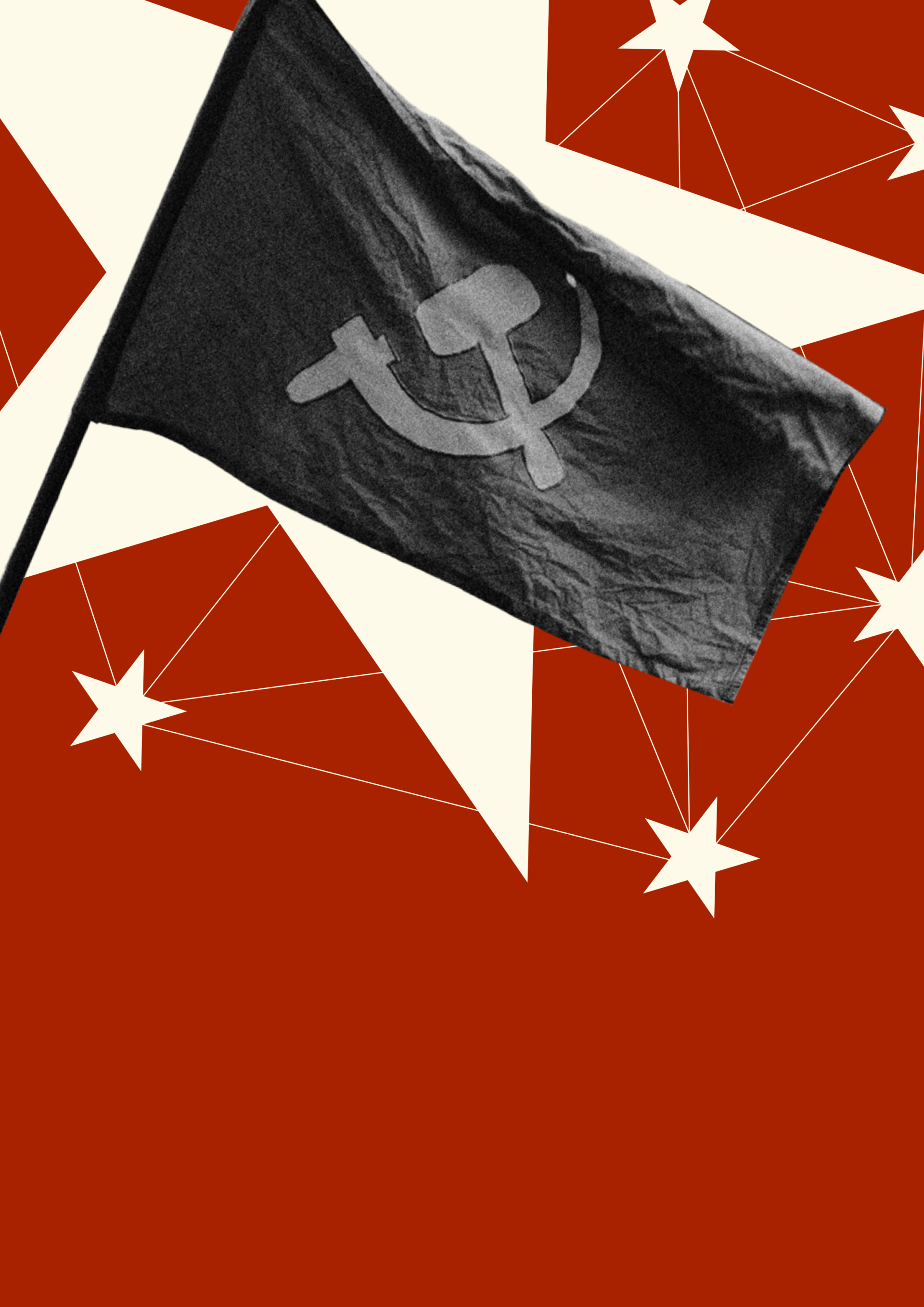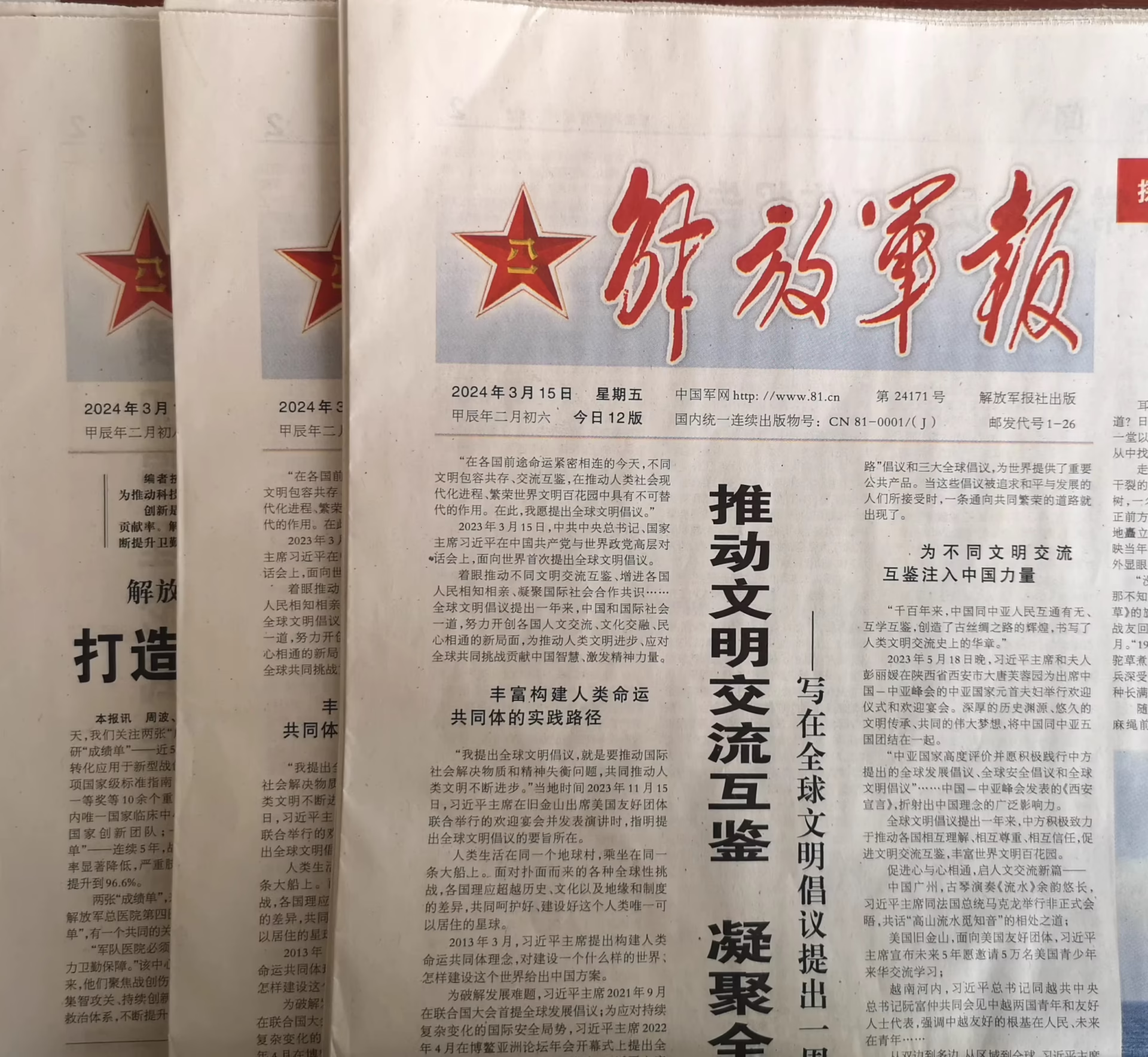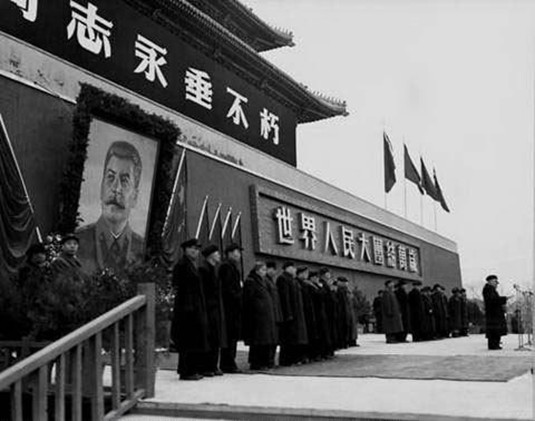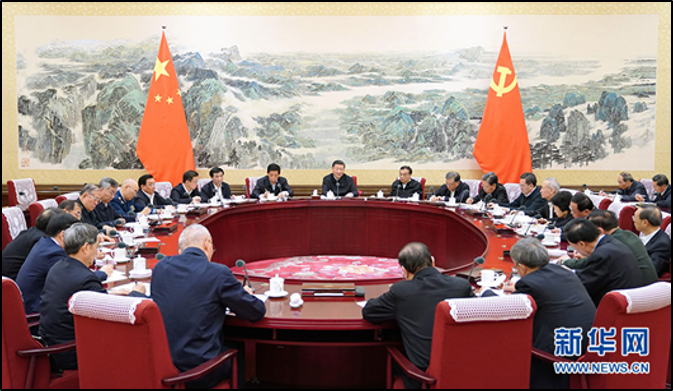
The “Democratic Life Meetings” of the Chinese Communist Party Politburo
The “Democratic Life Meetings” of the Chinese Communist Party Politburo
Introduction: The CCP Politburo and “Democratic Life Meetings”
On December 26 and 27, China’s central leadership held a “democratic life meeting” (民主生活会, minzhu shenghuo hui) for the full membership of the Chinese Communist Party (CCP) Politburo (Xinhua, December 27, 2019). This has become an annual end-of-year tradition for the Politburo, with similarly-designated meetings held in late December of each year from 2015 to the present (see accompanying chart). Official press treatment of the meetings since 2015 has consistently emphasized the authoritative position of CCP General Secretary Xi Jinping, invariably stating that he “presided over the meeting and delivered an important speech” (主持会议并发表重要讲话, zhuchi huiyi bing fabiao zhongyao jianghua) to the other assembled members.
| CCP Politburo End-of-Year “Democratic Life Meetings” (2015 – present) | ||||
| Year | Dates | Official or Selected Theme(s) | Source | |
| 2015* | Dec. 28-29 | Official theme:
“The Three Strictnesses and the Three Truths” |
三严三实
(San Yan San Shi) |
(Xinhua, December 29, 2015) |
| 2016 | Dec. 25-26 | Selected theme:
“Study Party Regulations and Rules, Study [the] Series of Speeches, Be Up-to-Standard Party Members” |
学党章党规、学系列讲话,做合格党员
(Xue Dang Zhang Dang Gui, Xue Xilie Jianghua, Zuo Hege Dangyuan) |
(Renmin Wang, December 28, 2016) |
| 2017 | Dec. 25-26 | Two selected themes:
“Set an Example in Studying and Implementing Xi Jinping Thought on Socialism with Chinese Characteristics in the New Era” and “Set an Example in Upholding General Secretary Xi Jinping as the Core of the Party Center” |
带头学习贯彻习近平新时代中国特色社会主义思想
(Daitou Xuexi Guanche Xi Jinping Xin Shidai Zhongguo Tese Shehui Zhuyi Sixiang) and 带头维护习近平总书记党中央的核心 (Daitou Weihu Xi Jinping Zongshuji Dang Zhongyang de Hexin) |
(Renmin Wang, December 27, 2017) |
| 2018 | Dec. 25-26 | Selected theme:
“Strengthening the Innovative Ideological Weapons” of the “Four Consciousnesses,” the “Four Confidences,” and the “Two Upholds” [1] |
强化创新理论武装…
(Qianghua Chuangxin Lilun Wuzhuang)… 四个意识 (Sige Yishi) 四个自信 (Sige Zixin) 两个维护 (Liangge Weihu) |
(Xinhua, December 26, 2018) |
| 2019* | Dec. 26-27 | Official theme:
“Don’t Forget [Our] Original Purpose and Firmly Remember the Mission” |
不忘初心, 牢记使命
(Bu Wang Chuxin, Laoji Shiming) |
(Xinhua, December 27, 2019) |
* Note: The meetings for 2015 and 2019 were each designated as a “special topic democratic life meeting” (专题民主生活会, zhuanti minzhu shenghuo hui), due to their single over-arching propaganda theme. The meetings from 2016-2018 had multiple themes, and were simply termed “democratic life meetings” in state press.
In past decades, meetings of the CCP Politburo generally took place in secret. [2] This has changed in more recent years, and Politburo meetings are often mentioned after the fact in state media—albeit irregularly, and with propagandistic rather than substantive reporting on their deliberations. The annual “democratic life meetings” are covered more consistently in state media, and are used as a venue to publicize narratives selected by the central leadership. The 2019 gathering was designated as a “special topic” (专题, zhuanti) democratic life meeting, which focused on promoting one of Xi’s priority propaganda slogans for party members in the second half of 2019 (see further discussion below).
What Is a “Democratic Life Meeting”?
In theory, “democratic life meetings” are a mechanism for CCP members to undertake self-criticism, as well as to provide constructive criticism of party practices and other CCP members, in order to improve party discipline and governance (China Brief, December 31). One official CCP source notes that members of CCP local branch committees “may have different opinions in thinking and work, [which] are inconvenient to speak of in party branch (party small group) organizational life meetings.” As a result, either quarterly or every 6 months, party branch committees should:
[C]onvene party democratic life meetings to implement party principles and policies, and pass resolutions on situations and some important internal questions for the party branch; as well as to exchange opinions, communicate thought, have honest discussions, develop criticism and self-criticism, help one another, supervise one another, sum up experiences, and integrate ideological understanding [in regard to] work style and work questions amongst one another. In this way, [these meetings] will be beneficial to party conduct, strengthen unity, and bring closer relations between the party and the masses. [3]
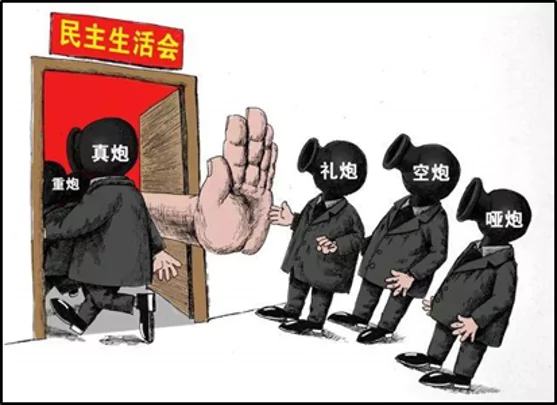
Themes from the December 2019 Politburo Meeting
The overarching official theme for the December 26-27, 2019 Politburo meeting was “Don’t Forget [Our] Original Purpose and Firmly Remember the Mission” (不忘初心, 牢记使命 / Bu Wang Chuxin, Laoji Shiming) (Xinhua, December 27, 2019). This is a propaganda slogan prominently associated with Xi Jinping, which has been promoted for party members throughout the second half of 2019. The “original purpose” (or “original aspiration”) refers to “the original goals of the CCP [which] include serving the people, rediscovering the party’s original and correct political orientations, realizing ‘socialism with Chinese characteristics,’ and strengthening ‘party construction’” (China Brief, July 31).
State press coverage of the December meeting was contradictory in nature: on the one hand, it attempted to depict the meeting as a model of collegial free discussion; while on the other hand, reinforcing the ever-growing personality cult of Xi Jinping. The state news agency Xinhua asserted that “the comrades of the Politburo had frank discussions with comrades who shared similar responsibilities,” and described each member taking the opportunity to speak in turn. However, these “frank discussions” revolved around topics such as the need to “study and understand… the important instructive spirit of General Secretary Xi Jinping’s latest important speech,” and unanimous agreement that “upholding General Secretary Xi Jinping as the core of the party center and the core position of the entire party… is the foundational political guarantee for advancing the unceasing development of socialism with Chinese characteristics” (Xinhua, December 27, 2019). Televised footage of the meeting—as with similar leadership meetings in the recent past—showed Xi speaking while more junior-ranking Politburo members attentively scribbled notes, in stylized displays of subservience and symbolic political loyalty (CCTV, December 27).
Conclusion
In theory, the CCP’s “democratic life meetings” should provide for honest and productive discussion of contentious issues among party members. However, the top-down nature of CCP bureaucratic power structures, in which the levers of both patronage and punishment lie in the hands of superior-ranking party officials, weighs heavily against this—as does the CCP’s long history of harshly persecuting and purging dissenters within its ranks. If the heavily scripted and top-down model presented by the Politburo is any indication, the true purpose of “democratic life meetings” is to promote greater political orthodoxy: such meetings are democratic only in the sense of Leninist “democratic centralism” (民主集中制, minzhu jizhongzhi), in which higher-level party leadership decisions are communicated to, and made binding upon, all party members.
The December Politburo meeting provides yet another data point regarding the CCP’s campaign for intensified ideological indoctrination within its own ranks (China Brief, December 31). It also provides a further illustration of the personality cult around Xi Jinping, which has risen to Stalinist heights. Insofar as there has ever been space for open debate within the CCP, that space appears to be increasingly restricted, even at the top levels of political leadership. The “democratic life” of the Chinese Communist Party is on an increasingly authoritarian trajectory.
John Dotson is the editor of China Brief. For any comments, queries, or submissions, reach out to him at: cbeditor@jamestown.org.
Notes
[1] These ideological slogans all revolve around loyalty to the CCP as an institution, and to Xi as its absolute leader. For a summary explanation of these slogans, see: John Dotson, “The CCP’s Renewed Focus on Ideological Conditioning, Part 2: The New Five-Year Plan for Training Party Cadres,“ China Brief (Dec. 31, 2019), endnote #4.
[2] H. Lyman Miller, “Hu Jintao and the Party Politburo, China Leadership Monitor (No. 9, Winter 2004). https://media.hoover.org/sites/default/files/documents/clm9_lm.pdf.
[3] “What Is a Democratic Life Meeting?” [什么是民主生活会?], CCP News Net [中国共产党新闻网], Sep. 20, 2012. https://dangjian.people.com.cn/n/2012/0920/c349309-19057516.html.
